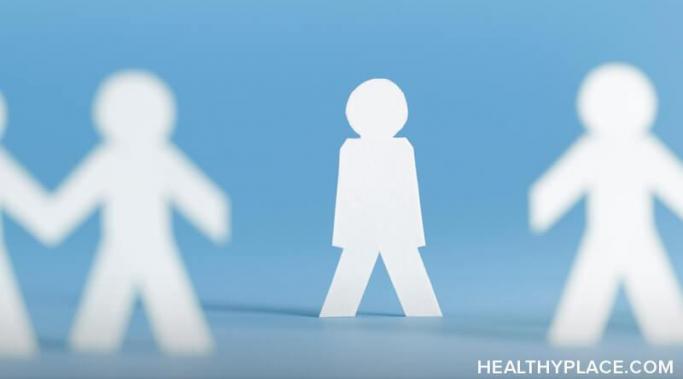Blogs
Ever so often, trying new anxiety management strategies is a good idea because anxiety has a way of sticking around long past when its welcome. Dealing with symptoms of anxiety day after day can be discouraging. When you’ve tried anxiety management strategies but anxiety still hangs on, it might be time to switch your approach. Most likely, you’re well aware of the need to try new ways to reduce anxiety. So often with anxiety, we know what we need to do, but because anxiety takes control of our thoughts, emotions, and actions, we feel stuck. The list that follows contains ideas for managing old anxiety symptoms with new anxiety management strategies.
Learning to face down your triggers in eating disorder recovery is non-negotiable. A trigger is any form of content, behavior, topic or event which exacerbates a trauma or mental illness, and today's culture is saturated with them. In a society that endorses the harmful message of ideal bodies, clean diets and extreme fitness, the pressure to cave into those triggering beliefs is enormous—and if you're susceptible to an eating disorder, that urge can feel overwhelming. Triggers in eating disorder recovery are ingrained in the broken systems of this world, so triggers can't be avoided entirely. So while it's unrealistic to pretend they don't exist, there are coping methods you can utilize to navigate triggering situations with a healthy mindset that won't risk your progress in recovery.
Life with dissociative identity disorder (DID) is most likely different than you've imagined. Perhaps you've heard the horror stories or seen the movies portraying us as killers, psychopaths, crazies, or dangers to society. Perhaps if you have been diagnosed with dissociative identity disorder, you might have compared your experiences with DID to that of others, wondering if your symptoms are "right" or if you're "normal." People are curious about the disorder because of the common misconceptions about DID. What is real and what is concocted? What is a day in the life of someone with dissociative identity disorder truly like?
There are some false assumptions about posttraumatic stress disorder (PTSD) that people continue to make, and they make me want to hand out informational brochures on PTSD myths. Especially bothersome are the misconceptions rooted in PTSD stigma. Let's take a look at some of the more common examples of false assumptions about PTSD.
The traits of successful entrepreneurs are closely linked to what I learned in mental health recovery. You see, my life came to a complete standstill in my early 20s when I was first diagnosed with bulimia and schizoaffective disorder. In the throes of my mental illnesses, my life had come crashing down around me. I wasn’t working. I wasn’t going to school. I wasn’t doing anything. The process of mental health recovery gave me a second chance, and psychiatric medication gave me the ability to function again. And in this second chance, I find many of the traits I developed in mental health recovery also develop entrepreneurs.
The costs of raising a child with special needs or childhood mental illness are a financial burden. In addition to the most obvious financial costs of raising a child with special needs, there are also the hidden costs of parenting our children. These financial costs can weigh upon the entire family and push parents of special needs children to the brink.
Rumination in depression (both unipolar and bipolar depression) is common, and it is typically a negative thing. Doctors will ask about ruminations as will therapists; but what is rumination and how do you handle rumination in depression?
When we think of social media and mental health, it tends to be a negative association. There are countless studies and stories about people developing depression or anxiety because of their time spent on social media. However, there’s another side to the story of mental health and social media.
There is a growing awareness around coercive control, as well as umbrella terms like verbal and emotional abuse. This is partly thanks to the UK law that was passed in 2015 (carrying a prison sentence of up to five years for perpetrators), and also due to celebrities speaking out as part of the #metoo and #timesup movements. Although no such progress has been made in the US in terms of legislation, this is still a step in the right direction; it's the start of our cultures taking lesser-known forms of domestic violence more seriously and recognizing the devastating effects of verbal abuse (as well as other types of abuse). So what exactly is coercive control, and how does it differ from other forms of abuse in a relationship?
Fatigue at work often interferes with your job when you have depression. When you are constantly exhausted, it’s hard to focus on your job, and depending on what you do, this can be dangerous. If fatigue because of depression at work is a problem for you, it’s important to take steps to manage it. In this post, I will go over habits to establish to help you manage exhaustion, as well as some quick tips for dealing with fatigue at work.










I believe she will only be able to rid herself of her demons, and hopefully her BPD as well, when she's ready to confront the abuse of her father. If she can put the blame where it belongs, she may stop projecting that victim/perpetrator cycle on the present men in her life. These demons are a metaphor for the purgatory she has created for herself. That reality has consequences in the real world, but it need not be real in the tangible sense. Exorcising her demons will require the expenditure of real physical energy and probably the destruction of aspects of her personality. If this ever happens, and it's possible but not probable, then these demons will evaporate. They are only as real as one's personality is real. In short, reality is not the question, it's what you make of the things you feel to be real.